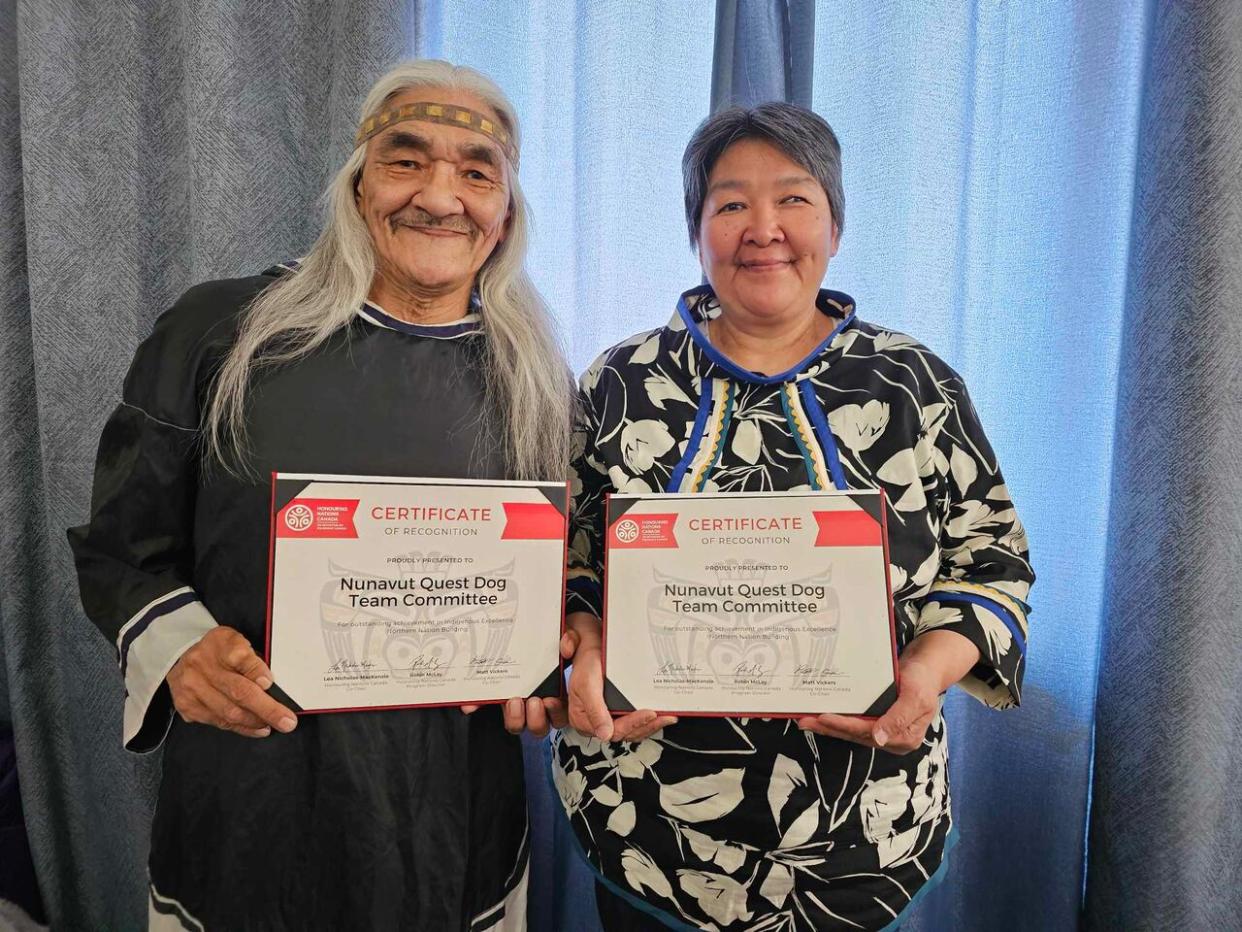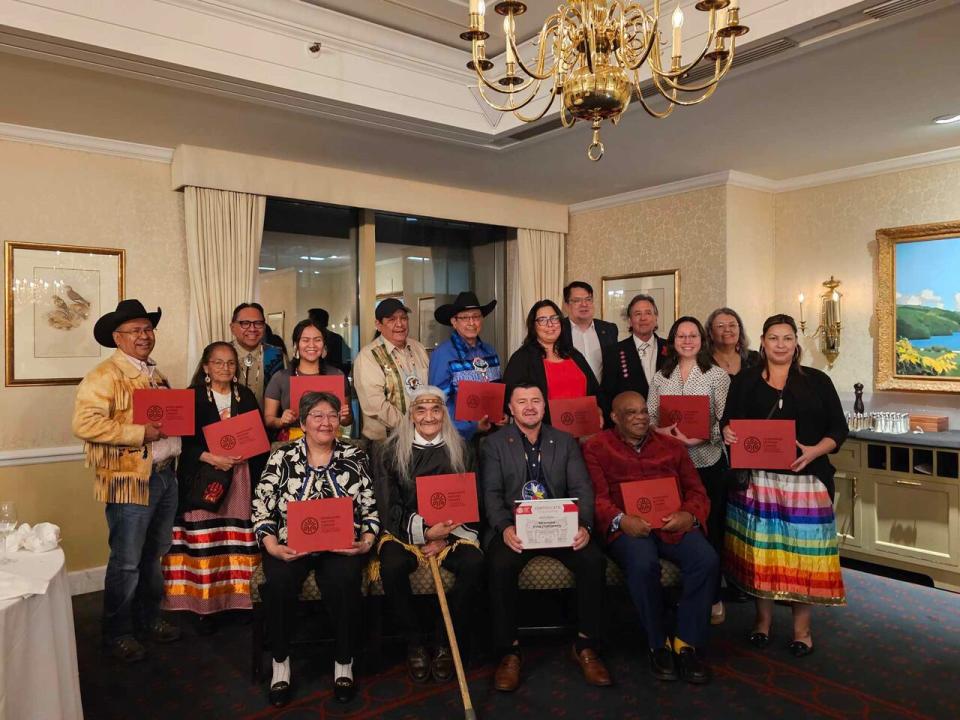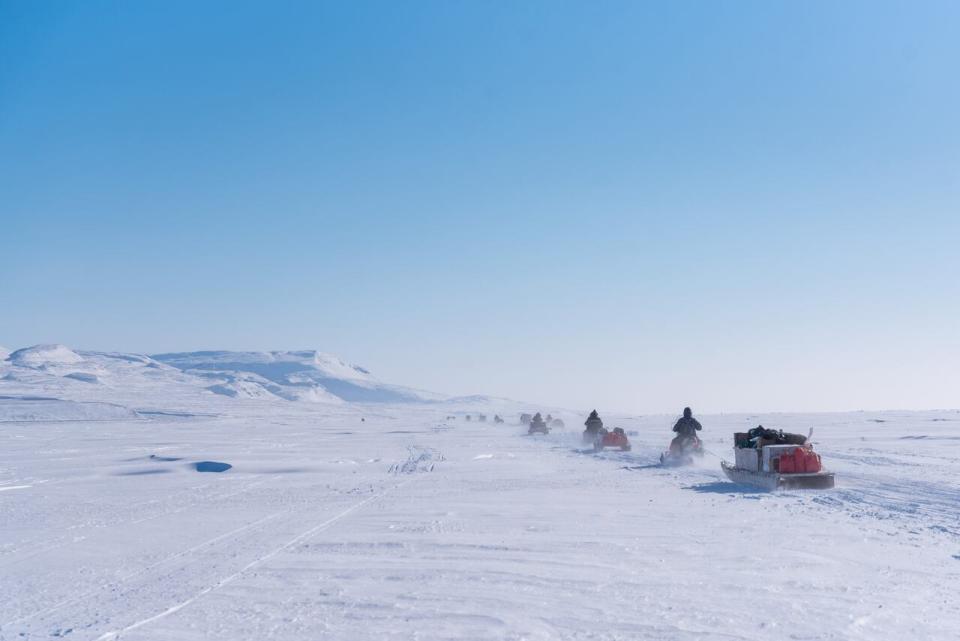Nunavut Quest wins major award for reviving once-threatened tradition

The team behind Nunavut Quest 2024 has another cause to celebrate, this time at Fulbright Canada's first National Indigenous Good Governance Awards.
Last week's event in Ottawa celebrated stories of Indigenous achievements, which saw the Nunavut Quest dog team committee take home the Northern Nation Building award.
It was the first time Igloolik volunteer Silas Attagutsiak attended an awards ceremony. So it was particularly special to receive his first award, on behalf of the committee, for something so close to heart, he said.
A lot went into putting on this year's 250 km race, from Arctic Bay to Pond Inlet, over sea ice and tundra. For starters, there were the logistics.
"All the qamutiiks have to be the same. The harnesses have to be traditionally made, and so on."
Then they have to contend with unfavourable trail conditions, like soft snow.
"Although it was very difficult for [the mushers] to go on that trail, they still did it," he said.

Silas Attagutsiak said he learnt a lot from other Indigenous group awardees, about struggles their communities still face to this day. (Submitted by Silas Attagutsiak)
But he said it's all worth it to keep the spirit of dog sledding alive, which he feels optimistic about, seeing this year's cohort of competitors.
"When we first started Nunavut Quest, it was mainly hunters and dog owners, older people in the race. As the years went by, the mushers became younger. This year's race, all the mushers were young people, and we were so proud of them."
"It tells us the elders are doing the right thing, they're still training the young people how to run their dog teams," he said.
Carrying on the tradition
Robin McLay, director of Fulbright Canada's Honorary Nations initiative, said the Nunavut Quest team's efforts in reviving the tradition of dog sledding is what sold the judges.
"A lot of the sled dogs were slaughtered by the Government of Canada, starting in the 1950s, which halted the traditional way of life, culture and identity. So [Nunavut Quest] really reintroduced this cultural practice, and highlighted the spiritual bond between nature and Inuit," McLay said.

A convoy of support snowmobiles with qamutiiks in tow, head toward the first Nunavut Quest camp, roughly 50 km outside of Arctic Bay, Nunavut, in 2022. (Dustin Patar/CP)
Fulbright Canada is a non-profit organization promoting academic exchanges between the United States and Canada.
He hopes to engage with federal government stakeholders to bring more attention to the impact Nunavut Quest, and other Indigenous-led innovations across Canada's north, have had on their communities.
This year's Nunavut Quest winner, 25-year-old Nanuraq Uttak of Igloolik, was a first-time competitor. With the fastest total time of 33 hours, 58 minutes and 38 seconds, Uttak took the race's $20,000 first prize.
The annual race, which began with the founding of Nunavut, celebrated its 25th anniversary.
Next year's race will run from Pond Inlet, the finish line for this year's race, to Igloolik.


